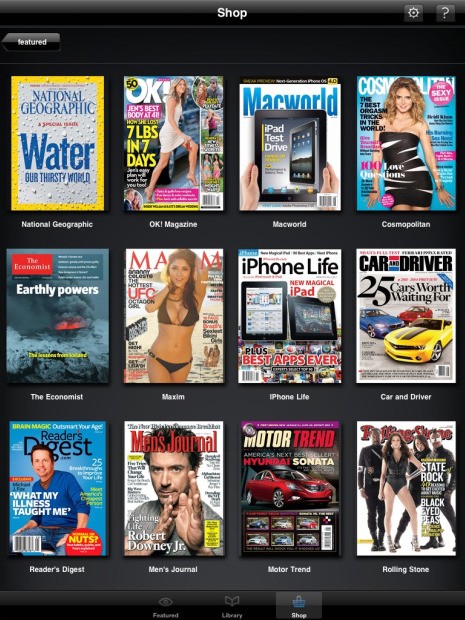
Just as the debate once raged about the state of print-versus-digital book publishing, magazines and newspapers are feeling the pinch of that familiar argument. While supporters on both sides of the book format aisle proclaimed that their preferred format was here to stay and the other was on its way out, the same points could be made of digital news.
Jeffrey Trachtenberg of the Wall Street Journal sat down with Time, Inc.’s CEO Joe Ripp to discuss the merits and relevance of magazines like People, a title that has steadfastly maintained its dedication to a monthly volume in the era of instant mobile news.
“For Joe Ripp, chief executive of Time Inc., the competitive landscape has translated into the sale of once-prized real estate, and a coming move to lower Manhattan that will save on rent,” wrote Trachtenberg.
“We’ve got a legacy business that is shrinking and it’s going to continue to shrink,” stated Ripp. “Go to any airport right now. There are fewer magazines being displayed. People are engaged with their iPhones; they aren’t reading magazines the way they used to. And when they are on the plane now they have Wi-Fi on board, so they’re doing their emails.
“They aren’t reading less of our content, however. If they are interested in celebrities they are still getting celebrity news; if they are interested in cooking they are still getting cooking information. They are just consuming it in different places.”
Ripp makes a profound point about formats over information. The clamor for the information hasn’t changed at all, though the format has shifted exponentially, perhaps even more so than for book publishing. Just as with books, though, there are books that you collect and books that you consume; print lends itself to titles that readers want to own for years to come, while ebooks were ideal for books that readers enjoyed and then promptly moved away from. The same can be said of magazines, specifically in instances in which the content is timeless, as opposed to something like celebrity news, which Ripp pointed out is in a constant state of motion.
With even the publishing industry admitting that it’s moving forward and leaving paper largely behind, a confession that the book industry is still waiting for, it’s important that outlets be prepared to meet consumers where they are when it comes to reading. Airports like Miami International have recently moved into the digital magazine space, as have a number of universities; hotels, motels, and other hospitality industry services have already made a smooth transition to offering digital content in exchange for customer loyalty, and public and academic libraries are adopting a digital circulation in greater numbers than ever before. If industry icons like People don’t catch up quickly with a faster-paced content offering, selling their real estate will be only one of many concerns.
Mercy Pilkington is a Senior Editor for Good e-Reader. She is also the CEO and founder of a hybrid publishing and consulting company.
